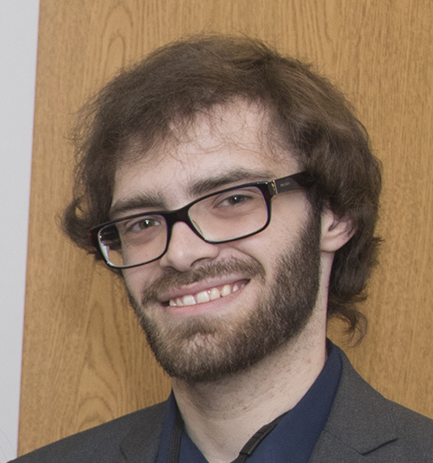Nicolas Mertz Joins the US Nuclear Regulatory Commission
At BU Law, Mertz (’18) tailored his coursework and summer internships toward nuclear law and regulation with the goal of working in the field after graduating.
 While studying nuclear engineering at the University of California, Berkeley, Nicolas Mertz (’18) soon realized that many of the problems with nuclear power and nuclear technology they discussed in class were not technical, but rather social and political.
While studying nuclear engineering at the University of California, Berkeley, Nicolas Mertz (’18) soon realized that many of the problems with nuclear power and nuclear technology they discussed in class were not technical, but rather social and political.
His passion for math and science, and nuclear physics in particular, had led him to study engineering, but Mertz also had an interest in those societal problems that result from this area of science. He felt he could carve out a career trying to solve them, and knew that law school would prepare him for that work.
Originally from Michigan, Mertz chose BU Law to pursue his goals in part because it was an area of the country in which he had never lived, and he could explore. One of the things that stuck out when he visited the school was how much the students he spoke with enjoyed it there—something he valued given the amount of time he expected to spend on campus. Ultimately, he could picture himself at BU Law studying the law as it relates to nuclear power.
Now an honors program fellow with the United States Nuclear Regulatory Commission, Mertz works with the Office of the General Counsel and practices nuclear regulatory law. BU Law spoke with him recently to learn about his experience in law school and how he feels it prepared him for government work.
The interview below has been edited for clarity and concision.
Q: How was your experience in law school?
A: I had a lot of influential courses and professors. My faculty mentor was Professor Rebecca Ingber and she had left government service shortly before I started at BU Law. I talked to her very early on about her experiences working for the government, and that really helped direct my interests in government work as opposed to a private law firm in the nuclear area.
Additionally, Professor Jack Beermann made his administrative law course incredibly interesting and entertaining. The class confirmed that government practice was the best area of law for me, and a lot of what I do today is directly related to what I learned in that class.
I currently work for the Nuclear Regulatory Commission (NRC) in the division of high-level waste, fuel-cycle, and nuclear security within the Office of the General Counsel. We do a lot of rule-making work and one of the things that Professor Beermann’s administrative law class focused on was the rule-making process. I have attended meetings where we used the same language or looked at the same requirements that I learned in that administrative law class.
You interned with the Nuclear Energy Institute and the Department of the Interior, what was that like?
During my 1L summer, I was with the Department of the Interior in the Northeast Regional Office. That internship confirmed for me that I wanted to work in the government because I really liked the way government work differed from law firm jobs. I worked on projects assigned to me by the attorneys with whom I was working. They would meet with clients, such as one of the agencies within the Department of the Interior, and assign me a sub-question to answer within a larger issue. I researched case law and past administrative findings and wrote memos trying to answer those questions.
The following summer I was an intern at the Nuclear Energy Institute. That internship gave me initial experience with nuclear regulations and types of administrative documents that I deal with at the NRC. I conducted research related to nuclear power reactor emergency planning requirements and separation of powers within the executive branch. There was a lot of memo writing and trying to answer specific questions about government actions.
How did you find out about your current job?
My counselor in the [Career Development & Public Service Office], Carolyn Goodwin, explained to me that the federal government typically hires entry-level attorneys through individual agencies’ honors programs. In my 1L year, I researched agency honors programs and I found the NRC’s website. I then targeted my later experiences in law school and legal internships to what they would be looking for so I could try to obtain a job with the agency.
What kind of work do you do on a day-to-day basis?
My day-to-day varies. There are weeks where I have meetings with other attorneys and members of the NRC’s technical staff to discuss various aspects of rule-making. Other times I answer specific questions from the technical staff so that they can make sure they are compliant with the law. I will also review Federal Register notices, other documents that are part of our rule-making proceedings, or letters to consult with other government agencies.
What is the biggest challenge you face?
It’s a very steep learning curve. The NRC has a large number of regulations that are specific to the agency, so coming in and getting a handle on what each regulation is and how it interacts with others is a big challenge at first.
The most rewarding part?
Through my work, I feel like I am having a larger impact on the world. The policies I work on are for the good of everyone—they protect the environment and ensure the safety of nuclear reactors and other nuclear technologies. I think it’s really rewarding that I have that larger impact on society.